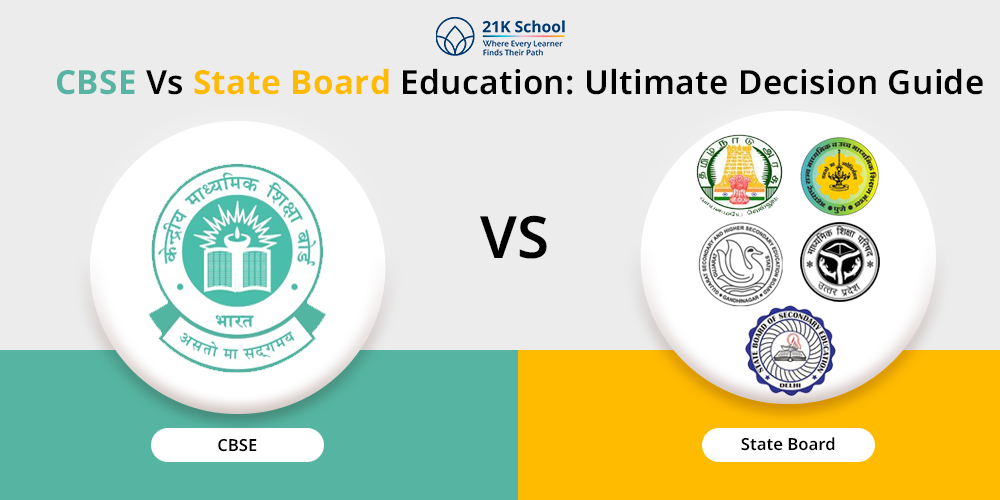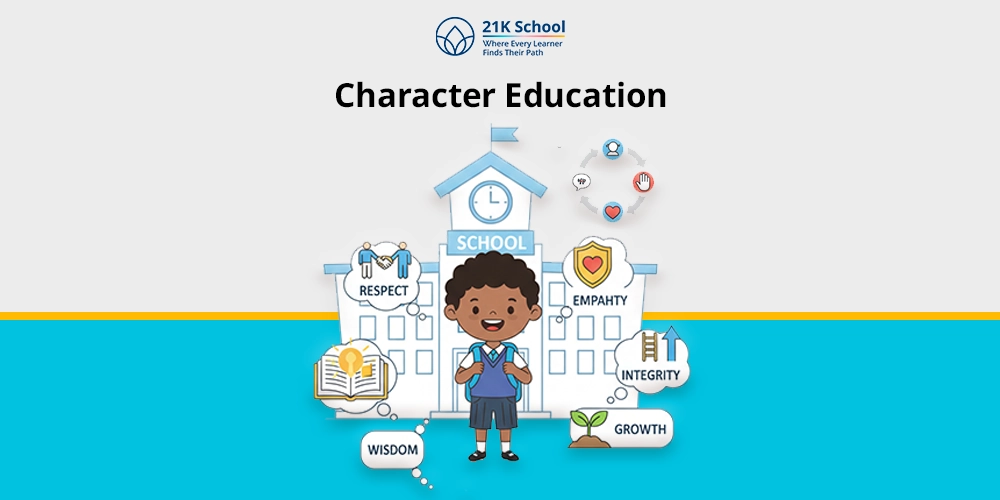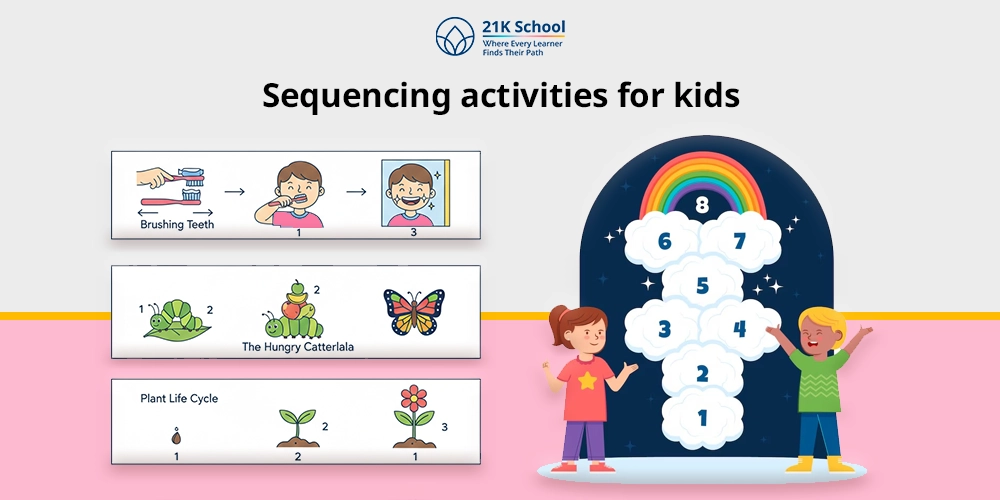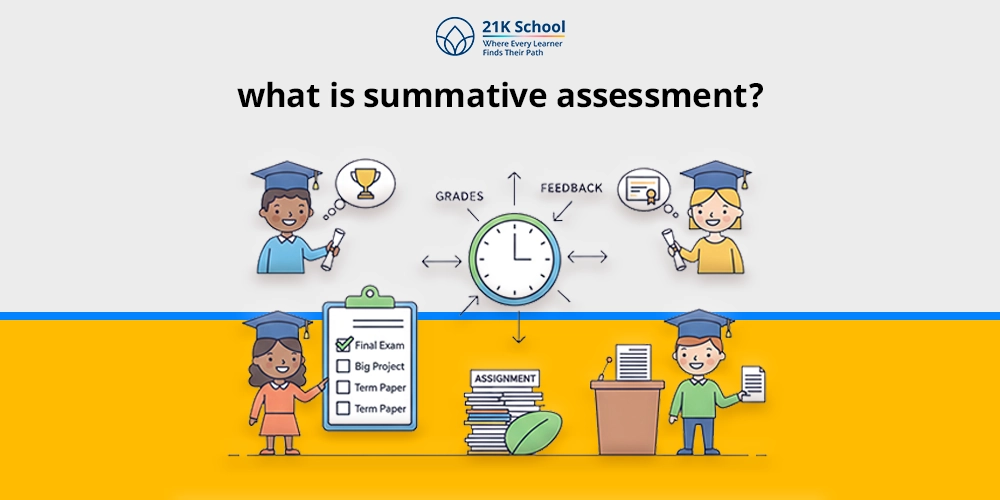
One of the most common discussions that goes on in the house of a middle class family is that, whether children would go to CBSE schools or state boards schools.
We all know that, what importance of education has in such families, so it becomes breathworthy to choose the right board for your children .
But how do we do it? Where do we get the right information with the right research that can help to come up with the best conclusion?
Well, we got your back! Read out the following article and get every piece of answer you had in your head related to CBSE vs State boards.
Contents
CBSE Vs State Board : Comparison
Mostly you might have seen that children go to CBSE schools of most states in our nation except few state boards like of Tamil Nadu, Maharashtra, etc.
Both of them are educational boards but what glorifies CBSE over other state boards? Let’s dive deeper and find out the elaboration:
| Aspect | CBSE | State Board |
| Curriculum Structure | Nationally standardized, more flexible | Regionally focused, varies by state |
| Academic Rigor | Higher emphasis on conceptual learning | More localized, can be less theoretical |
| Difficulty Level | Moderate to high across all grades | Varies significantly by state |
| Evaluation Methods | Continuous assessment with final exams | Primarily final exams, less continuous assessment |
| Medium of Instruction | Primarily English, with some regional language options | Usually regional language, with some English |
| Affiliation | National (applicable across India & abroad) | State-specific (limited to that state) |
A. Academic Rigor Comparison
1. Difficulty Level: Grade-Wise Analysis:
The level of difficulty can not be measured on pen or paper with CBSE boards or state boards, but CBSE syllabi is found to be vast as it directly aligns with the preparation of NEET and JEE.
On the beginners stage, state boards are more focused on local languages, cultural awareness , and developing basic children-based knowledge. When the level of grades increase in CBSE with most focus on science and maths but it might be different for different states.
2. Evaluation Methods: Continuous Vs Final Assessment:
In the state boards, evaluation is mostly based on what you just write on paper of exams. The matter of understanding deeply those things don’t really matter, pushing ahead the concept of memorization and rote learning .
For CBSE classes the final assessments are tougher but the preparation required to achieve good marks is well done with Monday tests, assignments, projects, and other ways.
3. Practical Vs Theoretical Approach:
In the Indian education system , there is merely any concept of practical learning , if we are talking now about CBSE or any other state boards.
But still, if we are going for evaluated comparison, CBSE would run the race better. It is supposed to be tougher thus showing practical approach inclusion quite a bit more than state boards (not all but most).
4. Study Material: Quality and Availability:
CBSE learning resources are all compact and of high quality as they rely on NCERT books for their delivery of content to children studying. These are available on google as online pdfs and offline as hard copies with paperback.
For state boards, different boards have different materials of providing knowledge structured according to their own cultures. These content deliverers are mostly bought at cheaper rates by the parents and students.
B. Career Outcomes Analysis
1. Higher Education Admission Rates: Statistical Data
From decades it has been well proven how cbse has been the best to study as per competitive exams preparation and clarification. Times of India in one of its articles posted how in Chennai most students qualifying for medical colleges were from CBSE boards.
State boards are still not there yet in providing best learning outcomes for clearing competitive exams.
2. Professional Success Stories: Case studies
Success doesn’t depend on what boards of education you have chosen, either be it CBSE or state boards. A learner’s capacity to critical thinking and work hard is what decides their career paths ahead in the future.
It is not undeniable though that CBSE students are more likely to succeed rather than state boards students, leaving few other boards students as exceptions.
3. Skill Development: Real-World Application
CBSE is found to be more in line with the importance of skill development and provides quality input for learners till time. State boards are more bent towards the subject culture and deliver content that often discusses local matters more.
C. Financial Investment Analysis
1. Total Cost Breakdown: 10-Year Education Expense
State boards are cheaper, but the quality education is subject to be compromised.
In the 10 year education journey, the costings of the state board are way lesser than what constitutes for that of CBSE studying expenses. The fee for tuition, transport, and other miscellaneous materials under CBSE private schools require good economic background unlike for state boards.
Explore which is better cbse or stateboard after 10th .
2. ROI Analysis: Career Outcome Vs Investment
CBSE schools are often found to be one of the best schools for best career outcomes as they have potential to let excel students in JEE, NEET, etc. State boards are surprisingly not that well-equipped for return of investment in career attainment.
3. Hidden Costs: Books, Uniforms, Activities
No more added cost for getting better of state boards education in most cases is there. But CBSE schools, especially the private ones adds all, including reference books, extracurricular activities , etc.
4. Scholarship Opportunities: Board-Wise Financial Aid
State boards students’ educational costs are supported by state scholarships which are not too less, neither too much. Not just that, CBSE schools might be dependent on aid from KPVY, NTSE, etc. for aiding in school expenses.
Explore everything about the ICSE, CBSE and State Board .
What is CBSE?
CBSE refers to the educational board of India accepted in 27000 schools for conducting exams, paper checking, syllabi structuring, practical evaluations, etc. It is obligated to function under the Ministry of Education, Government of India since 1962.
1. Curriculum Structure
CBSE has grown itself as a master curriculum designing, at least in India which cultures great areas through alignment with competitive exams preparation. It has slightly more focus on practical learnings, but these are not taking account of the 21st century skills for students required in the workplace today.
2. Advantages:
- English language supremacy in CBSE schools
- Good for shifting or switching education internationally or inter-state wise.
- Already challenging the study requirements of JEE and NEET exams.
Also read: Benefits of CBSE boards .
3. Disadvantages:
- Most often than not CBSE students take extra tuition.
- The syllabus is not culture driven and is uniform across states.
- Often more hard than state boards books chapters.
What Are State boards?
State boards are regional boards of education for each state in our country, India, that emphasize more on cultural expertise of students rather than universal content acquisition.
1. Curriculum Structure
The curriculum in state boards are curated in manners where lower levels of education are subjected to teach local language based education. As the child reaches higher levels the exam conduction, and content taught is more universal kind.
2. Advantages:
- Children are open to get ancestral learnings right during early childhood .
- It has lower costs of educational expenditure.
- Highly proficient teaching in states like Tamil Nadu and Maharashtra.
3. Disadvantages
- The quality of education is affected kind of poorly.
- Cannot be dependable for preparing for National-level competitions.
CBSE Vs State Board- Actionable guidelines
The choice of going for CBSE or state boards schools is simple if you are clear of your talents, future goals, and success view. Parents can have their own ideas but it would be better if they consider their children’s choice and of course their income support.
1. Choose CBSE If:
- You have a work culture having frequent family relocations
- Planning for national competitive exams
- Budget allows for higher investment
- Seeking international opportunities or
- Prefer English medium education
2. Choose State Board If:
- Budget is your first limitation in deciding your career plans
- Planning to stay in same state
- Value local language and culture
- Targeting state-level opportunities
- Prefer less academic pressure
You can also refer to the benefits of state boards shifting to CBSE .
Wrapping Up
It is possibly seen which of CBSE or state boards are more likely to provide greater benefits in terms of career development, if you also are hesitant on covered costs.
CBSE schools are great for your learning and even get your back for competitive preparatory exams. And no offense but state boards lag on this part except a few exceptions in certain states that take education really seriously.
You can choose what suits you best with the help of the above article, we hope this was helpful!



